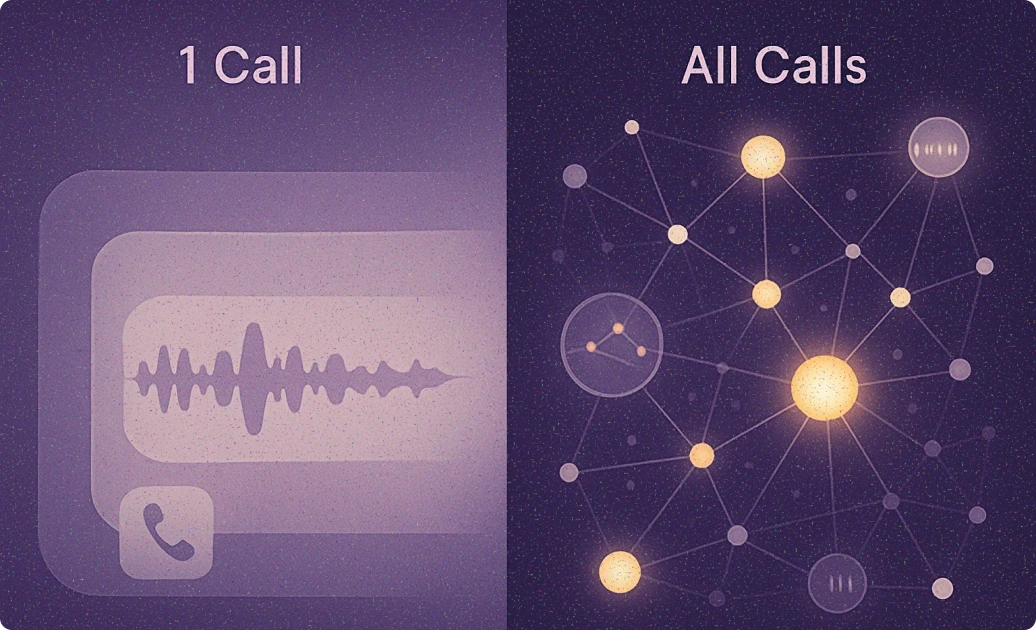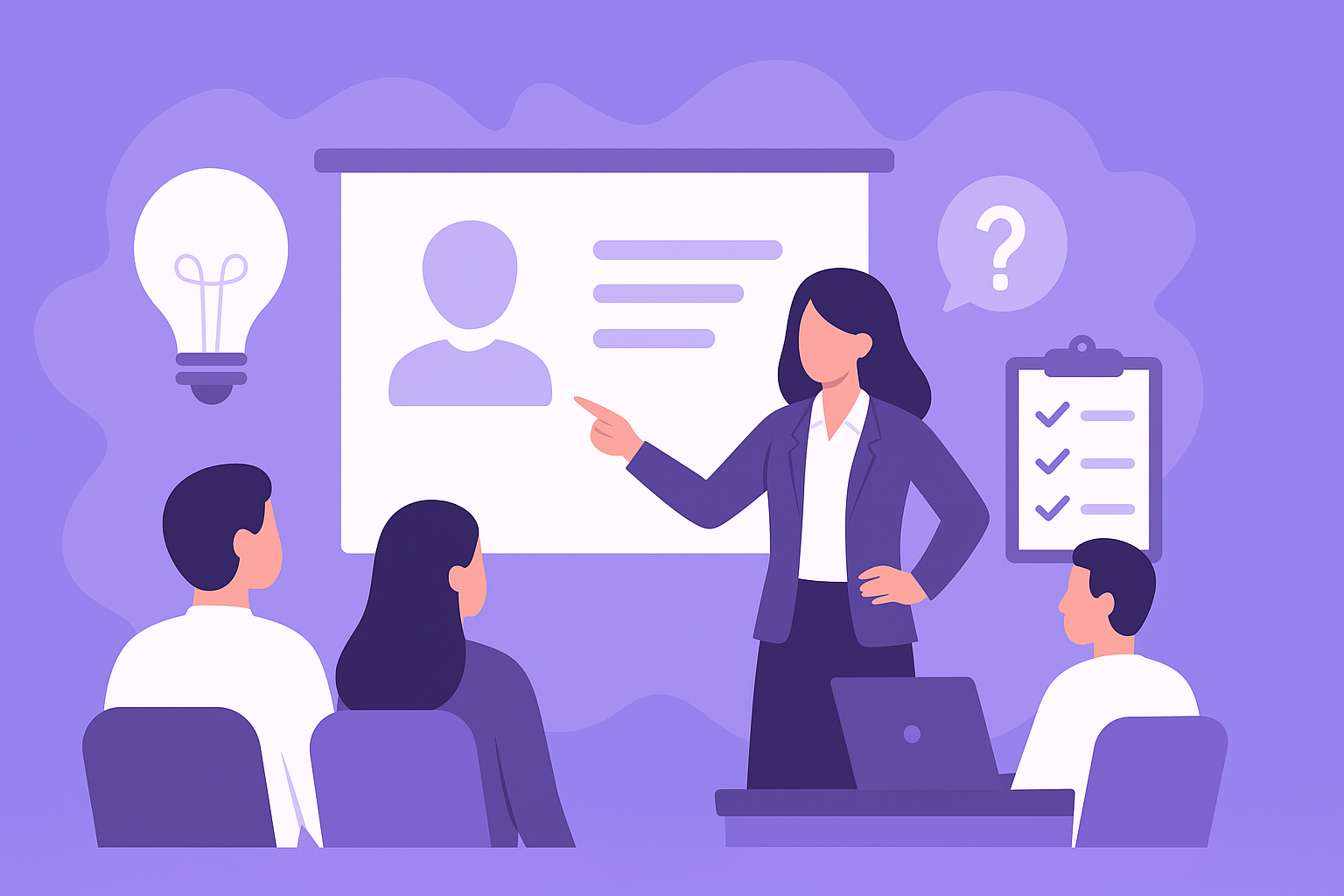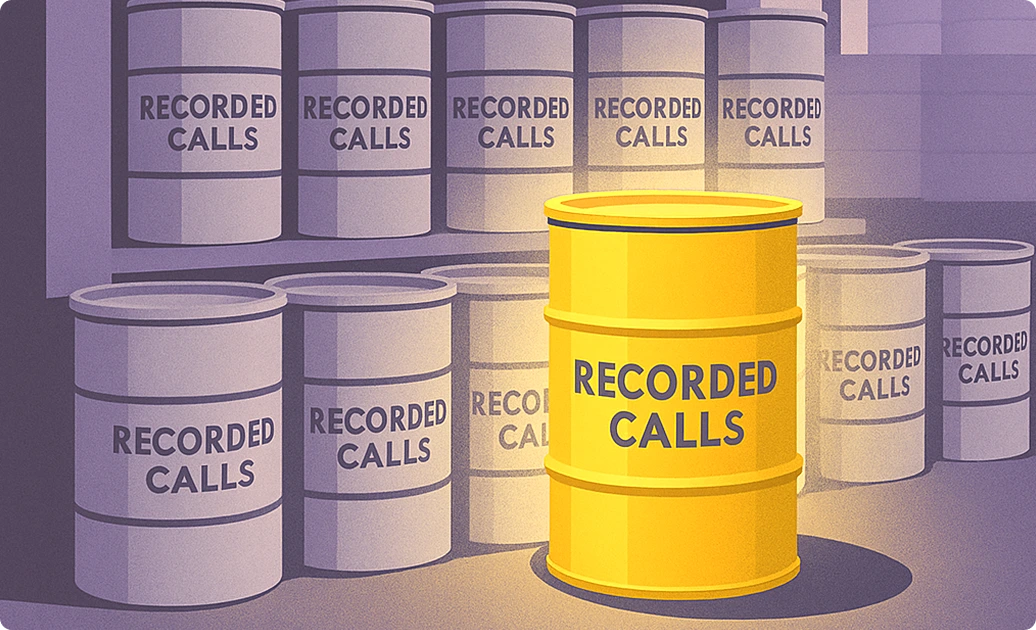Chatbots That Suggest Next Coaching Topic After Skill Mastery
-
Bella Williams
- 10 min read
Adaptive coaching chatbots are revolutionizing how individuals approach personal growth and skill acquisition. Imagine a scenario where, after completing a course module, a chatbot seamlessly proposes the next topic for deeper exploration, enhancing the learning journey. This technology is not just a novelty; it represents a significant shift towards personalized coaching, offering targeted recommendations based on user performance and preferences.
As we delve into the world of adaptive coaching chatbots, it's crucial to understand their role in facilitating effective skill mastery. These AI-powered tools analyze data, providing timely feedback and suggesting relevant topics that align with users' mastery levels. By fostering an engaging and adaptive learning environment, these chatbots empower users to take control of their learning paths, ensuring that every step is aligned with their goals and aspirations.
Analyze & Evaluate Calls. At Scale.

The Role of Adaptive Coaching Chatbots in Personalized Learning
Adaptive Coaching Chatbots play a pivotal role in personalizing the learning journey for users. By analyzing learners’ progress, these intelligent systems can offer tailored suggestions that directly follow skill mastery. Once a user has grasped a skill, the chatbot can recommend relevant topics that foster deeper understanding and continued growth. This tailored approach ensures that learners are not only recognized for their achievements but are also guided seamlessly into the next phase of their educational journey.
Moreover, the interaction with Adaptive Coaching Chatbots significantly enhances the learning experience. These chatbots can provide instant feedback and guidance, addressing individual needs based on user preferences and learning history. By continuously adapting to the learner's progression, they maintain an engaging environment that fosters motivation. Ultimately, this dynamic form of coaching encourages users to overcome obstacles and reach their full potential while enjoying a personalized learning experience.
How Chatbots Facilitate Skill Mastery
Adaptive Coaching Chatbots play a crucial role in facilitating skill mastery in online learning environments. These chatbots create personalized learning experiences by tailoring content to the individual needs of each learner. By assessing users’ current skill levels, they provide targeted resources and exercises that help reinforce new concepts. This immediate access to tailored content accelerates the mastery of skills, ensuring learners stay engaged and motivated.
Moreover, timely feedback is essential for reinforcing learning and correcting misunderstandings. Adaptive Coaching Chatbots can offer instant responses to user queries, allowing learners to clarify doubts in real time. This constant support helps individuals navigate complex topics more effectively. As learners achieve mastery in specific skills, the chatbot can suggest subsequent topics, keeping the learning journey dynamic and relevant. By continuously analyzing user interactions, these chatbots improve their suggestions and enhance the overall learning experience, making skill mastery a more attainable goal for everyone.
- Explaining Skill Mastery in Online Learning
Understanding skill mastery in online learning is crucial for effective personal development. Skill mastery signifies not just the completion of training, but also the ability to apply learned knowledge in practical scenarios. Adaptive coaching chatbots play a pivotal role in this process by monitoring progress and identifying when a learner has achieved mastery.
Once mastery is reached, the next step becomes essential—suggesting further topics or skills for growth. These chatbots assess individual performance and offer personalized recommendations, fostering continuous learning. The timely feedback they provide helps learners stay engaged and motivated. Through this dynamic interaction, users can explore new areas of expertise, ensuring a well-rounded educational journey tailored to their specific needs and interests. This seamless integration of technology enhances the online learning experience, making skill mastery not just an endpoint, but a stepping stone to lifelong learning.
- The Importance of Timely Feedback and Guidance
Timely feedback and guidance are crucial components of any learning process, especially in the realm of skill mastery. When learners can receive immediate insights on their performance, they are better equipped to understand the areas needing improvement. Adaptive Coaching Chatbots excel in delivering this real-time support, allowing users to track their progress effectively. Such chatbots can suggest relevant topics as soon as skills are mastered, ensuring a continuous learning journey.
Moreover, timely guidance fosters a sense of confidence among learners. When individuals know their efforts are recognized, they are more likely to engage with the learning material actively. By consistently receiving constructive feedback, users can refine their skills and enhance retention. This dynamic interaction not only personalizes the learning experience but also strengthens the bond between the learner and the technology, making the training more impactful and relevant.
Steps to Implement Chatbots for Post-Mastery Suggestions
Implementing Adaptive Coaching Chatbots for post-mastery suggestions can enhance the learning experience significantly. First, it's crucial to integrate skill assessment features. These features allow the chatbot to evaluate a learner’s mastery of specific topics, providing a solid foundation for recommending subsequent subjects. Assessments should be tailored to highlight individual strengths and weaknesses, ensuring personalized feedback.
Next, designing algorithms for topic suggestions is essential. These algorithms should analyze assessment results alongside learner preferences, driving tailored recommendations. Monitoring the effectiveness of these suggestions ensures that learning paths remain relevant and stimulating. Finally, continuously updating learning paths adds value by adapting to evolving learner needs and emerging topics in the field. This proactive approach ensures that the Adaptive Coaching Chatbots effectively support ongoing skill development and maintain learner engagement.
- Integrating Skill Assessment Features
Integrating skill assessment features is crucial for enhancing the effectiveness of Adaptive Coaching Chatbots. These features allow chatbots to evaluate a learner’s proficiency across various skills, tailoring suggestions to accommodate individual progress. By analyzing performance metrics, chatbots can accurately identify areas of mastery and those needing improvement. This targeted feedback is vital to ensure learners remain engaged and motivated on their educational journey.
Moreover, the integration of these features can create a dynamic learning environment. As learners complete skill modules, chatbots can seamlessly suggest the next topics based on assessment results. Such adaptive capabilities not only optimize the learning process but also empower learners to take charge of their development. Through continuous assessment, chatbots transform into personalized coaching companions that guide users toward their next achievement, ensuring that each interaction is meaningful and aligned with their goals.
- Designing Algorithms for Topic Suggestions
Designing algorithms for topic suggestions is a critical component of creating effective Adaptive Coaching Chatbots. These algorithms analyze user data to identify the individual’s strengths and areas requiring further development. By integrating feedback loops, chatbots can assess skill mastery and recommend the most suitable next topics or skills to explore. This personalization not only enhances user engagement but also sustains the growth trajectory of learners.
To achieve optimal performance, developers can focus on key areas when designing these algorithms. First, understanding user interactions helps in tailoring suggestions based on past behaviors. Second, utilizing machine learning techniques enables chatbots to improve recommendations over time by learning from user feedback. Lastly, constant evaluation of outcomes ensures that suggested topics align with learners' evolving needs. Together, these strategies foster a more dynamic and personalized coaching experience, essential for developing a continuously improving learning environment.
- Continuously Updating Learning Paths
Adaptive Coaching Chatbots play a crucial role in continuously updating learning paths for users. The learning landscape is dynamic, requiring personalized experiences that adapt as students master new skills. These chatbots are designed to analyze individual progress efficiently, identifying when a user has mastered a particular skill and suggesting the next optimal topic to explore. This not only enhances user engagement but also ensures that learning remains relevant and tailored to the user’s evolving needs.
Furthermore, the continuous updating of learning paths promotes sustained interest and motivation among users. By providing real-time insights and suggestions, Adaptive Coaching Chatbots empower individuals to take charge of their learning journeys. They harness data-driven algorithms to recommend subsequent topics that align with user goals and preferences. Incorporating timely feedback mechanisms further enriches the learning experience, fostering a sense of achievement and encouraging learners to tackle new challenges confidently.
Extract insights from interviews, calls, surveys and reviews for insights in minutes
Top Tools for Adaptive Coaching Chatbots
Adaptive Coaching Chatbots have transformed the way learners enhance their skills and receive personalized guidance. Selecting the right tool is essential for effectively suggesting next steps after skill mastery. First on the list is a tool that automates skill assessment. This feature allows chatbots to accurately evaluate user competencies, ensuring tailored coaching suggestions.
Next, tools that personalize learning experiences are crucial. They adapt to individual learning styles and preferences, making the coaching journey more engaging. Furthermore, effective analytics and progress tracking tools help in monitoring learner performance, providing valuable insights for continuous improvement. Lastly, seamless integration with learning management systems enhances the user experience. This ensures that chatbots function smoothly within existing educational platforms, allowing for a cohesive learning ecosystem.
Investing in these top tools for Adaptive Coaching Chatbots not only facilitates learner growth but also enhances overall engagement and retention in skill development programs.
insight7 and Its Unique Features
Adaptive Coaching Chatbots have emerged as innovative solutions for enhancing learner engagement and persistence in online environments. Insight7 showcases its distinct features, focusing on user feedback and personalization as key components. With its ability to provide customized learning journeys, it adapts to individual skill mastery and offers timely suggestions for subsequent topics. This adaptability is essential for maintaining motivation in learners, allowing them to progress seamlessly through their educational path.
One of the most notable features of Insight7 is its intelligent algorithms, which assess a learner's progress and suggest next steps based on previously achieved skills. Additionally, it prioritizes the synthesis of qualitative data that informs user interactions. The platform emphasizes user experience through a clear dashboard and accessible tools, fostering a supportive learning environment. Ultimately, Insight7's unique features make it a valuable resource for educators and learners, ensuring personalized guidance that keeps engagement levels high.
- Leveraging insight7 for Enhanced Learner Engagement
Adaptive Coaching Chatbots utilize advanced analytics and data synthesis to enhance learner engagement meaningfully. By synthesizing qualitative data on learner interactions, chatbots can identify when a learner has mastered a skill. This critical insight allows for timely recommendations of subsequent topics to ensure continuous progression. The personalized approach not only keeps learners motivated but also maximizes their learning outcomes.
Employing Insight7 can significantly amplify the effectiveness of these chatbots. With the ability to analyze and interpret conversational data, chatbots deliver customized content and support based on individual learning journeys. As learners receive relevant topic suggestions after skill mastery, they experience a seamless transition into more advanced subjects. This proactive engagement strategy fosters a deeper connection with the learning material, creating a more enriching educational experience overall.
- Customizing Learning Journeys with insight7
Customizing learning journeys is paramount for effective education, particularly when utilizing Adaptive Coaching Chatbots. These chatbots not only assist learners in mastering skills but also play a pivotal role in determining personalized paths for improvement after skill acquisition. By integrating features that assess progress, these chatbots can suggest relevant topics or areas that require further attention.
Key components of customizing learning journeys include integrating skill assessment features, designing sophisticated algorithms for topic suggestions, and continuously updating learning paths based on learner feedback. First, skill assessments ensure that the chatbot understands a learner’s current capabilities and identifies gaps. Second, advanced algorithms analyze these gaps, providing recommendations tailored to each learner's needs. Finally, regular updates to the learning paths ensure that the system evolves alongside the learner, making their experience truly personalized and effective. By implementing these components, organizations can create a more engaging and supportive learning environment.
Other Noteworthy Chatbot Tools
Other Noteworthy Chatbot Tools include various innovative solutions enhancing the coaching landscape. These tools play essential roles in automating skill assessment, personalizing learning experiences, tracking analytics, and ensuring seamless integration with Learning Management Systems (LMS). A well-designed adaptive coaching chatbot can significantly improve the learner's experience.
1. Automating Skill Assessment: This tool uses algorithms to evaluate a learner's mastery of specific skills through quizzes or interactive assessments. By analyzing performance, it provides tailored feedback, helping users identify areas for improvement effectively.
2. Personalizing Learning Experiences: These chatbots adapt content based on learners' preferences and past performance. By suggesting relevant topics to explore after mastering a skill, they enhance the learning journey and keep users engaged.
3. Analytics and Progress Tracking: Advanced chatbots gather data insights on user engagement, skill evolution, and completion rates. These analytics enable educators to adjust teaching strategies and offer support where it's most needed.
4. Seamless Integration with Learning Management Systems: Many notable chatbot tools can integrate easily with existing LMS. This integration allows for a smoother delivery of resources and personalized recommendations, making learning more efficient and user-friendly.
- Tool 1: Automating Skill Assessment
Automating skill assessment plays a crucial role in the functioning of Adaptive Coaching Chatbots. These advanced tools utilize algorithms that evaluate a learner’s mastery of specific skills, offering real-time feedback. By conducting thorough assessments, the chatbots can effectively identify strengths and weaknesses, guiding users toward areas that require further improvement. This targeted approach ensures that each learner receives personalized recommendations based on their individual progress.
To maximize the effectiveness of these assessments, several key elements must be integrated. First, setting up skill assessment features is essential to gauge proficiency accurately. Next, designing sophisticated algorithms will enable the chatbots to suggest relevant topics for further exploration. Lastly, continuously updating learning paths ensures that the coaching remains dynamic, adapting to each user’s unique journey. Through these mechanisms, Adaptive Coaching Chatbots not only streamline skill evaluations but also pave the way for continuous learning and growth.
- Tool 2: Personalizing Learning Experiences
Adaptive Coaching Chatbots play a pivotal role in personalizing learning experiences for individuals. By analyzing user interactions and skill mastery, these chatbots can suggest tailored topics for further exploration. This personalized approach not only reinforces the skills already acquired but also fosters continuous engagement in the learning journey. As users navigate through various learning modules, the chatbots ensure that their experiences remain relevant and motivating.
To effectively utilize these chatbots for enhancing learning experiences, a few critical steps should be followed. Firstly, integrating skill assessment features allows for better tracking of individual progress. Next, designing algorithms to suggest relevant topics ensures that learning stays on target and aligned with user goals. Lastly, continuously updating learning paths based on user feedback and mastery levels is essential in sustaining interest and progression. By embracing these strategies, Adaptive Coaching Chatbots can significantly transform the learning landscape, making education more tailored and effective.
- Tool 3: Analytics and Progress Tracking
Adaptive Coaching Chatbots empower users to continually enhance their skills by providing analytical insights and tracking progress effectively. Through real-time analytics, these chatbots can assess individual performance and alert learners when they have mastered a skill. Once a skill has reached mastery, the chatbot utilizes progress tracking to suggest the next relevant coaching topic, ensuring that users remain engaged and motivated.
The process includes evaluating performance metrics, which help identify skills that need improvement. Analyzing user interactions also reveals patterns that indicate readiness for new topics. By harnessing these insights, Adaptive Coaching Chatbots deliver personalized growth experiences, catering to the unique pace of each learner. This personalized approach not only maintains user engagement but systematically addresses individual learning gaps, optimizing the overall coaching experience.
- Tool 4: Seamless Integration with Learning Management Systems
Integrating adaptive coaching chatbots with existing Learning Management Systems (LMS) enhances the coaching experience by ensuring a seamless flow of information. This integration allows coaches to effectively monitor learner progress while suggesting customized next topics once skill mastery is achieved. By leveraging a connected system, chatbots can analyze learner data and provide insights tailored to the individual’s progress and needs.
Users benefit significantly from this seamless integration, as it eliminates the need for manual tracking. The chatbots can access and interpret learning history directly from the LMS, making timely suggestions that align with the learner's development trajectory. Additionally, it facilitates efficient project management and file organization, ultimately enhancing collaboration among users. This streamlined approach in the educational process promotes ongoing engagement while minimizing administrative burdens for coaches, allowing them to focus on delivering high-quality guidance.
Conclusion: The Future of Adaptive Coaching Chatbots
As we look towards the future, Adaptive Coaching Chatbots promise to redefine personalized learning experiences for users. By leveraging advanced algorithms and continuous data analysis, these chatbots can effectively guide individuals through their skill mastery journey, ensuring that they receive tailored coaching topics as they progress.
The integration of AI into coaching will foster greater engagement and motivation among learners. Furthermore, as technology evolves, we can anticipate even more sophisticated features that enhance the adaptability of these chatbots. Ultimately, the future holds immense potential for Adaptive Coaching Chatbots to revolutionize how we approach learning and development in various fields.







